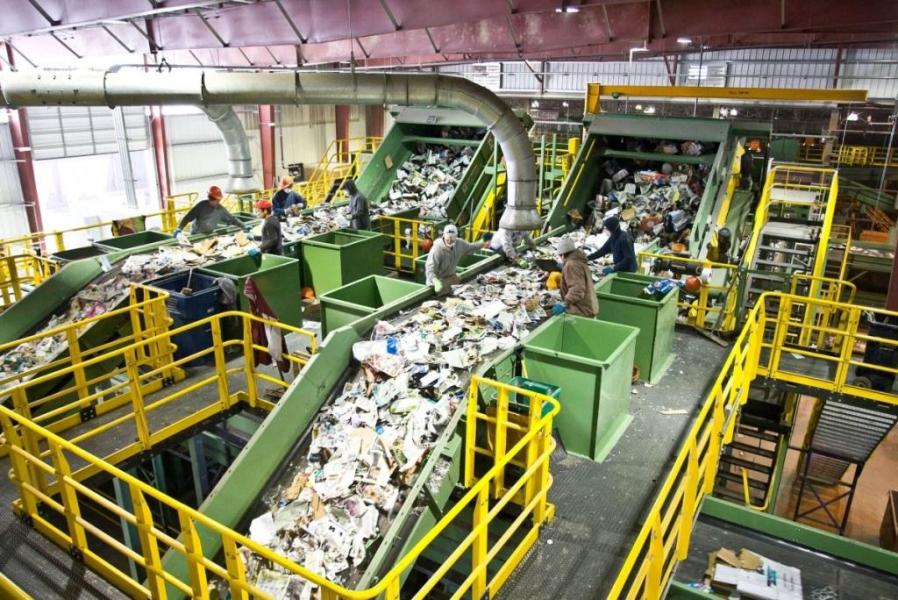India generates a vast amount of waste every year, posing significant environmental and health challenges. Effective waste management practices, including recycling and waste reduction, are essential to address these issues.In recent years, waste reduction and recycling have become critical aspects of building a sustainable future worldwide. With a rapidly growing population and increasing urbanization, we face significant waste management challenges. However, by implementing effective waste reduction and recycling strategies, it is possible to harness its potential to create a greener and more sustainable future.
Waste Generation & Composition
India produces approximately 62 million tons of waste every year, with over 75% of it not being processed. The majority of the waste generated includes organic waste, plastic, paper, glass, metal, and hazardous waste. According to a study by the Central Pollution Control Board, plastic waste accounts for almost 12% of the total waste generated in India.
Recycling Capacities
India’s recycling capacity is not commensurate with the levels of waste generated. It is estimated that only 20-25% of the total waste generated is recycled, with a significant portion of it being recycled in the informal sector. According to the Central Pollution Control Board, India recycles about 60% of the plastic waste generated in the country. However, the recycling industry is still in its nascent stages, and the majority of the waste recycling is done by informal sector players.
Current Initiatives
India has taken significant strides in waste reduction and recycling initiatives. The government has launched several programs and policies focused on waste management and sustainable practices. The Swachh Bharat Abhiyan (Clean India Mission) aims to achieve cleanliness and proper waste management across the country. The Atal Mission for Rejuvenation and Urban Transformation (AMRUT) focuses on improving waste management infrastructure in urban areas. Additionally, the Extended Producer Responsibility (EPR) framework encourages manufacturers to take responsibility for the life cycle of their products, including their eventual disposal.
Key Players
Some of the prominent players in the formal recycling industry include the following:
- Attero Recycling
Attero Recycling is a leading electronic waste recycling company, with the capacity to process over 120,000 metric tons of e-waste annually. They have recycling plants in six locations across India and follow environmentally sustainable practices in their operations.
- Bharuch Enviro Infrastructure Limited (BEIL)
BEIL is an integrated waste management company, with 18 common hazardous waste treatment, storage, and disposal facilities across the country. Their facilities can process 120,000 metric tons of hazardous waste every year.
- Ramky Enviro Engineers
Ramky Enviro Engineers Limited is a well-known provider of waste management services, with the capacity to process 24,000 metric tons of solid waste daily. They provide sustainable waste management solutions across India and other countries.
- NEPRA Resource Management
NEPRA is one of the leading players in the waste management industry, with a capacity to process 400 metric tons of waste per day. They have been recognized as the most sustainable waste management company in the country, receiving various awards for their initiatives.
Benefits of Waste Reduction & Recycling
Waste reduction and recycling play a vital role in addressing environmental concerns, conserving resources, and mitigating climate change. By reducing waste generation and recycling materials, we can significantly minimize the need for landfill space and reduce greenhouse gas emissions associated with waste disposal. Effective waste management practices can contribute to cleaner cities, healthier communities, and a more sustainable future.
Implementing waste reduction and recycling practicescan yield numerous benefits. Firstly, it can reduce the burden on landfills and mitigate environmental pollution. By diverting waste from landfills, cities can reclaim valuable land for other productive purposes. Recycling also conserves natural resources, such as minerals and timber, by promoting the reuse and refurbishment of materials. Moreover, waste management practices generate employment opportunities in recycling industries, contributing to the country’s economic growth.
Challenges in Waste Management
Despite the efforts of the formal recycling industry, challenges in waste management continue to persist. Some of the major challenges include:
- Inadequate waste collection and segregation systems
- Lack of public awareness and participation in waste management
- Insufficient infrastructure and technology for recycling and processing
- Limited funding for waste management initiatives
Despite the progress made, we still face several challenges in waste reduction and recycling. Insufficient infrastructure, inadequate waste collection systems, and limited public awareness remain obstacles that need to be addressed. The effective segregation of waste at the source and robust recycling infrastructure are critical for success.
The Way Forward
To overcome these challenges, we should focus on enhancing education and awareness campaigns to foster a culture of waste reduction and recycling. Additionally, improving waste collection systems and investing in state-of-the-art recycling facilities can help increase the recycling rate. Collaboration between the government, private sector, and citizens is essential to building a sustainable waste management ecosystem.
The waste management industry is still evolving, and significant efforts are required to address the challenges. Adequate infrastructure, including facilities for waste collection, segregation, recycling, and processing, is necessary to build a sustainable waste management ecosystem. In addition, public participation and awareness campaigns can create a significant impact in reducing waste generation and promoting recycling in the informal sector. A multi-stakeholder approach involving the government, private sector, and citizens is key to building a sustainable waste management ecosystem.
Building a sustainable future requires a concerted effort to reduce waste generation and promote recycling. By implementing effective waste management policies, improving infrastructure, and fostering public awareness, cleaner, healthier cities can be created while conserving valuable resources.








.jpg)


